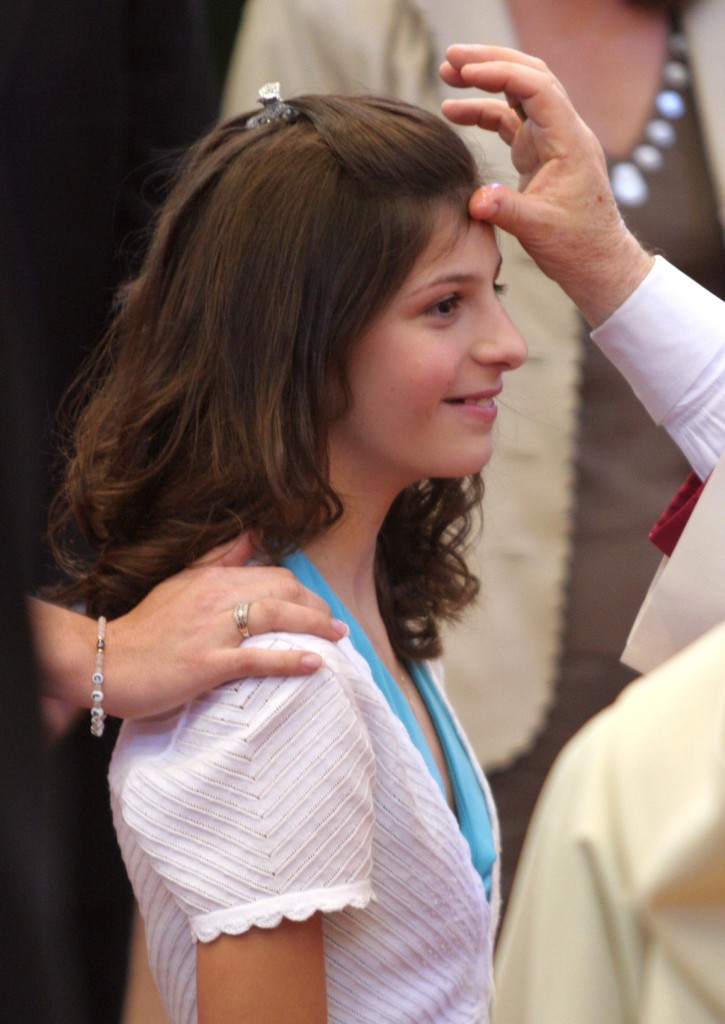What Every Parent Should Know
 What does the Church ask of parents in sacrament preparation?
What does the Church ask of parents in sacrament preparation?
The church views the role of parents in religious formation of children as both a privilege and an obligation. When you presented your child to the Church for Baptism, you were distinctly reminded that you have the responsibility to “bring [your child] up in the practice of the faith” (Rite of Baptism 56). This privilege and obligation extends to all sacrament preparation.
What is the appropriate age for the Sacrament of Confirmation?
According to the official documents of the Church, the age for Confirmation and First Eucharist is the same. The Code of Canon Law states “Confirmation is to be conferred on the faithful about the age of discretion.” On August 31, 2001, the United States Conference of Catholic Bishops decreed the age of conferring the sacrament of Confirmation in the United States to be between “the age of discretion (about age 7) and about 16 years of age.” What this means is that within the age parameters set forth, each local bishop may determine his own diocesan policy regarding age for Confirmation. For this reason, we see a variety of practices in place from diocese to diocese and parish to parish.
How do I know if my child is ready for Confirmation?
If a baptized child of catechetical age is growing up in a home where the faith of the parents is expressed in personal prayer, regular worship with a parish community, and in a life lived in accordance with Gospel values, then that child is ready.
The purpose of the sacrament preparation program is to help the children and parents prepare for these initiation events. A child’s readiness for initiation is not a matter of religious instruction. When a child is confirmed, they are celebrating another stage in their full initiation into the Church community. It is a beginning. With guidance, participation in age-appropriate programs, and celebrating the sacraments, especially the Eucharist, they continue to grow in faith. Therefore ongoing participation in faith formation programs and/or Catholic school is essential.
Preparation for and celebration of the Sacraments of Initiation in no way imply Christian maturity or “completion,” but rather they celebrate an individual’s full membership in the Church. Continued catechesis and spiritual growth are integral to the life-long process of coming to Christian maturity and faith.
My child is reluctant about participating in the Confirmation preparation program and being confirmed. What can I do?
First of all, you need to talk with your child about why they are feeling reluctant. Are they uncomfortable with another person in the youth group or are they questioning their faith? If the issue is programmatic, talk with the confirmation coordinator. If your child is questioning their faith, don’t panic—this is normal.
Most young people are confirmed, just as they were baptized, into their parents’ religious tradition. However, before a person can truly own their faith, they need to question it. A good confirmation program will not only respect your child’s questions, but welcome his/her critical thinking.
As a parent, help your child see the difference that faith makes in your own life. Talk about your own faith journey and what belonging to the Catholic Church or your parish has meant to you. Introduce him/her to faithful role models, both the famous and the infamous. Help your child to see how faith comes to life when we live it out in service to others. Perhaps they may discover that belonging to the Church is meaningful and exciting!
